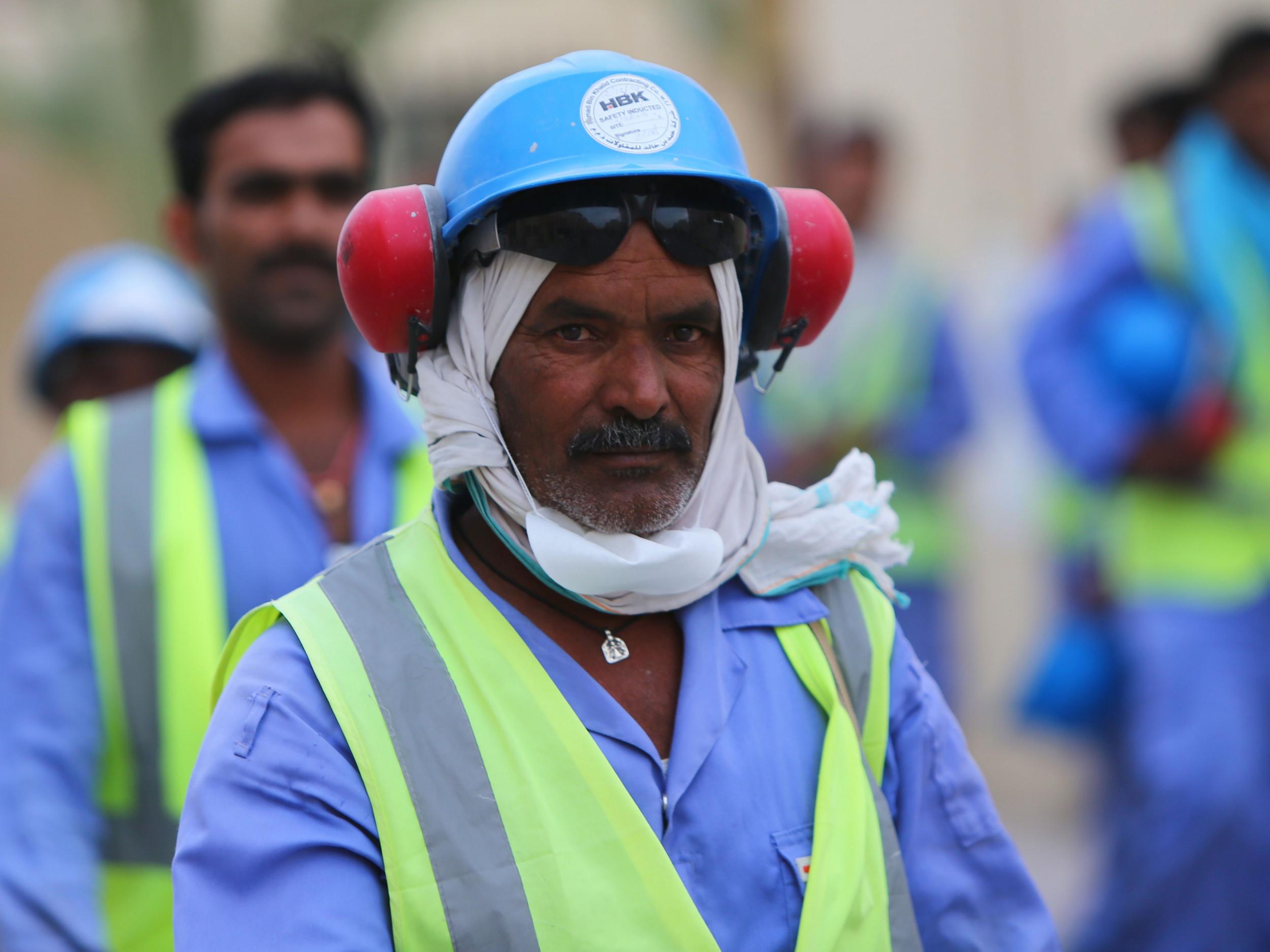The Middle East is using the coronavirus pandemic as an excuse to expel South Asian migrant workers
If they are not treated like home citizens, deprived of decent accommodation and healthcare, migrants' host countries will face the threat of a serious Covid-19 outbreak. Brabim Karki writes


Bibek Kumar was on his way to a shop in Sanaya city, Doha when the Qatari police arrested him on 15 March after telling him he was being taken to be tested for the new coronavirus. Instead, he was detained in a detention centre for several days and then deported to Nepal. He was not allowed a chance to collect his belongings or outstanding salary.
“It was very terrible inside the centre," he told me. "There were hundreds of migrant workers. It was notoriously overcrowded and we were not given enough food and water. The water was very dirty. Food was served in plastic bags.”
Kumar, who hails from Nepal and had been working as a security guard, is friends with my relative who was deported alongside other Nepali migrant workers. He went to Qatar after borrowing some money to pay recruitment brokers to take him there. He was promised a high paying job but it failed to materialise. He was stuck earning little in a country he did not know.
Qatar is now using the global pandemic of Covid-19 as a smokescreen to illegally expel dozens of Nepali migrant workers, according to the human rights group Amnesty International. Qatar detained and deported dozens of migrant workers on 15 and 19 under the pretext of a testing regime for the new coronavirus. Police apprehended hundreds of workers, most of them from Nepal, then held them in detention centres for several days, according to the human rights watchdog. At least 20 were then deported to Nepal.
It’s a cruel fate for South Asian migrant workers in the Middle East, who already face an uncertain future as a now-unwanted excess workforce is haggled over by host countries during the pandemic.
The oil-rich Middle East countries have relied on the cheap labour of South Asian migrant workers to boost their economies, but now the economic tides are turning. In some of the wealthy Gulf countries, migrant workers make up half or more of the population.
The lavish lifestyle of citizens of Gulf nations is maintained by the low paid efforts pf such workers. Many labour in scorching heat to transform the region’s deserts into sophisticated cities. Mega-malls, artificial islands, luxury hotels, stadiums, highways and skyscrapers have been possible due to years of graft of migrants sacrificing family life for a meagre return.
Now, the global health pandemic has made the situation for such migrants worse: they are losing their jobs and running out of money. Meanwhile they are crammed into dormitories, often in unsanitary conditions, and are facing the high rates of Covid-19 infections.
The United Arab Emirates has threatened the labourers' home countries, including Nepal and other South Asian nations, to repatriate migrants quickly, warning that quotas on migrant workers could be imposed in the future if they fail to comply. Other Gulf nations are expected to follow suit.
The Gulf countries owe these migrant workers a debt of gratitude for their valuable contributions. They should be providing better health care, safe accommodation and sanitary living conditions, and food during this crisis. Immigration rules for those with expiring visas should also be relaxed. Instead, in a shameful abdication of responsibilities, the Gulf nations are abandoning these workers entirely and attempting to force their departure.
That's not in the best economic interests of either party. The hard work of South Asian migrant workers is important both for the destination country and the migrants' home nations. Their remittances, which have soared in recent years, are a lifeline for South Asian countries. Nepal alone is calculated to have received $8.6bn in migrant salary remittances last year, mostly from those working overseas in the Gulf nations.
Given their living conditions, there is a high risk of migrant workers' exposure to Covid-19. If they are not treated like home citizens, deprived of protections and health care, their host countries will face the threat of a more serious outbreak spreading across the entire population.
Governments of South Asian countries should quickly access the situation of migrant workers and address their problems. They should aim for a form of bilateral cooperation in which the Gulf countries assure that they will take care of their migrant workers, while making necessary preparations to support those who want to return home.
Brabim Karki is an author and businessman based in Nepal, and the owner of Mero Tribune media. He has written two books
Join our commenting forum
Join thought-provoking conversations, follow other Independent readers and see their replies
Comments